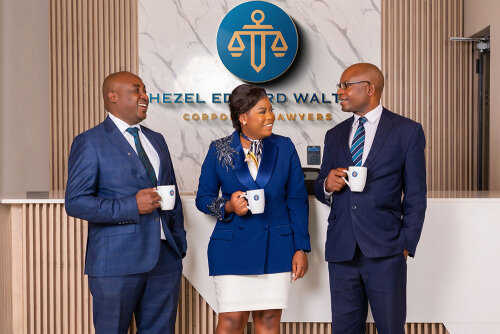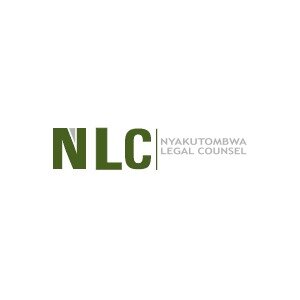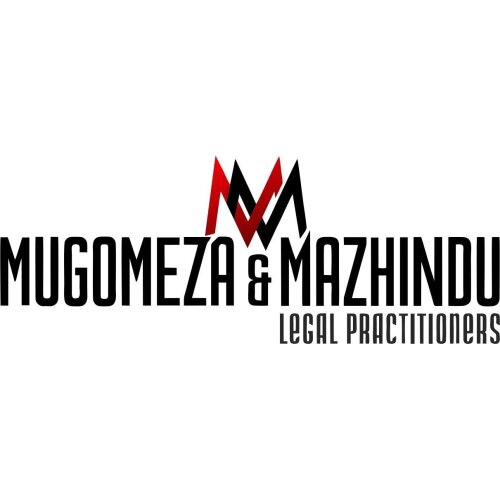Best Legal Document Lawyers in Harare
Share your needs with us, get contacted by law firms.
Free. Takes 2 min.
List of the best lawyers in Harare, Zimbabwe
About Legal Document Law in Harare, Zimbabwe
Legal document law in Harare, Zimbabwe, encompasses a wide array of paperwork-related legal requirements and procedures used in various legal contexts. These documents can include contracts, wills, deeds, affidavits, and any other form of binding agreement or declaration. The legal system in Zimbabwe functions through a blend of common and statutory law, and understanding the local requirements for legal documents is essential for ensuring their enforceability. Having accurately drafted and legally compliant documents is crucial as they serve as the foundation for legal processes and rights negotiation, making them a vital aspect of legal practice in Harare.
Why You May Need a Lawyer
There are several situations where individuals might require legal assistance related to legal documents in Harare:
- Drafting Contracts: Whether it's a business agreement or a personal contract, ensuring all legal stipulations are met is essential to protect your interests.
- Wills and Estate Planning: Proper documentation of wills and estate plans ensures that an individual's wishes are honored after their passing.
- Real Estate Transactions: Buying or selling property requires precise documentation to legally transfer ownership and outline terms.
- Dispute Resolution: Legal intervention can be necessary to mediate and resolve disputes involving contracts or other legal documents.
- Corporate Governance: Businesses may require legal documentation for compliance, resolutions, and other formalities.
Local Laws Overview
The legal framework in Harare regarding legal documents is influenced by a mix of statutory and customary laws, with key considerations including:
- Notarial Certification: Certain documents must be notarized to be considered legally binding.
- E-signatures: Electronic signatures are becoming increasingly recognized, provided they adhere to the Electronic Transactions and Electronic Commerce Act.
- Specific Performance: Contracts may contain clauses that necessitate action beyond simple reimbursement, underlining the importance of precise language.
- Consumer Protection Regulations: Ensure that consumer-facing documents comply with national standards to avoid validity issues.
Frequently Asked Questions
What constitutes a legal document in Zimbabwe?
A legal document is any written instrument that formally records a legally enforceable act, process, or agreement. This can include contracts, deeds, wills, powers of attorney, and affidavits.
How can I ensure my contract is legally binding?
A contract must meet certain criteria to be legally binding: offer, acceptance, mutual consent, consideration, competence, and legality of purpose. Consultation with a lawyer can help ensure these are properly addressed.
Are electronic documents legally recognized in Zimbabwe?
Yes, electronic documents are recognized under the Electronic Transactions and Electronic Commerce Act. However, certain formalities and requirements must be met to ensure their validity.
What is the role of a notary public in legal documents?
A notary public is authorized to verify signatures, administer oaths, and witness the execution of documents, thereby adding an additional layer of authentication.
Do I need a lawyer to draft a will?
While it is not mandatory to have a lawyer draft a will, it is highly recommended. A lawyer can ensure the will complies with all legal requirements and accurately reflects your wishes.
How can I dispute a legal document?
Disputing a legal document typically requires examining the document in question, gathering evidence, and potentially seeking redress through legal action. Consulting a lawyer is advisable.
What is the process for registering a power of attorney in Harare?
Power of attorney must be executed in writing, signed, and, in some cases, registered with the deeds office to be valid. Consulting a lawyer can help navigate this process.
Are template legal documents sufficient for use?
While templates can be a starting point, they often lack the specifics required for unique situations and may not comply with local laws, which is why tailored legal advice is recommended.
Can a lawyer help with mediation over disputes involving legal documents?
Yes, lawyers can facilitate mediation by offering legal counsel and negotiation skills to resolve disputes effectively outside of court.
What costs are involved in acquiring legal documents?
Costs can vary widely depending on the complexity of the document, the legal firm’s fee structure, and any required administrative processes or registrations.
Additional Resources
Several resources can offer additional help and guidance:
- The Law Society of Zimbabwe: Offers directories of registered legal practitioners who can assist with legal documents.
- Zimbabwe Judicial Service Commission: Provides updates and information on the judicial processes in Zimbabwe.
- Zimbabwe Revenue Authority (ZIMRA): For documentation related to taxation and customs.
- Registrar's Office: Handling registrations, including deeds and estates.
Next Steps
If you need legal assistance related to legal documents, consider the following steps:
- Identify the type of document or legal issue: Understand whether you need a contract, will, affidavit, etc., and the specific purpose of the document.
- Consult a lawyer: Find a qualified legal professional in Harare to provide tailored advice and ensure compliance with local laws.
- Document review and drafting: Work with your lawyer to review or draft the necessary legal documents, ensuring all legalities are met.
- Ensure proper execution: Follow all necessary steps, such as notarization and registration, to ensure the document is legally recognized.
- Keep records: Maintain copies of all legal documents for your personal records and future reference.
Lawzana helps you find the best lawyers and law firms in Harare through a curated and pre-screened list of qualified legal professionals. Our platform offers rankings and detailed profiles of attorneys and law firms, allowing you to compare based on practice areas, including Legal Document, experience, and client feedback.
Each profile includes a description of the firm's areas of practice, client reviews, team members and partners, year of establishment, spoken languages, office locations, contact information, social media presence, and any published articles or resources. Most firms on our platform speak English and are experienced in both local and international legal matters.
Get a quote from top-rated law firms in Harare, Zimbabwe — quickly, securely, and without unnecessary hassle.
Disclaimer:
The information provided on this page is for general informational purposes only and does not constitute legal advice. While we strive to ensure the accuracy and relevance of the content, legal information may change over time, and interpretations of the law can vary. You should always consult with a qualified legal professional for advice specific to your situation.
We disclaim all liability for actions taken or not taken based on the content of this page. If you believe any information is incorrect or outdated, please contact us, and we will review and update it where appropriate.
















